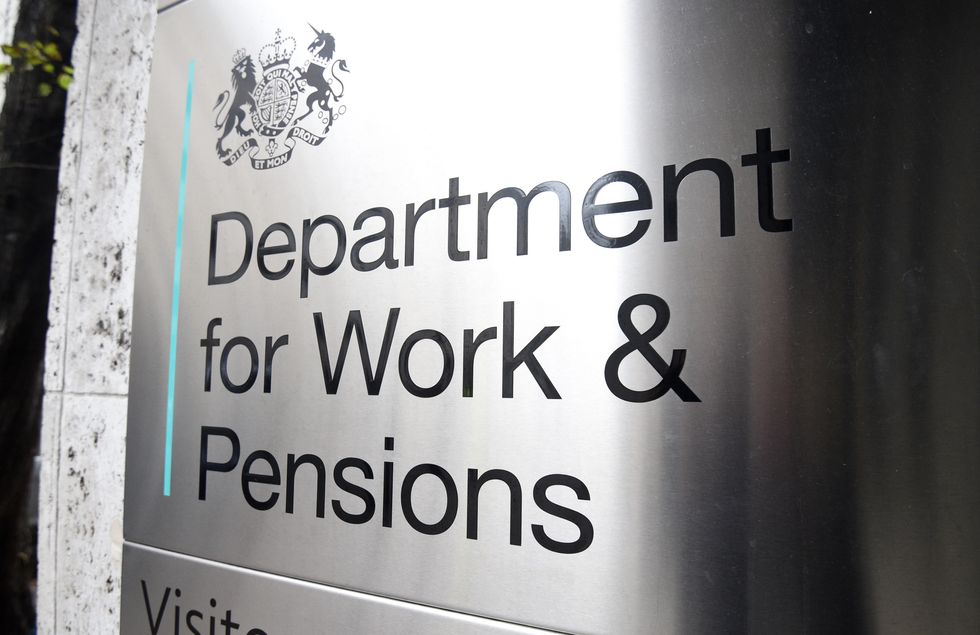State pension payments TRIPLE to £36k a year for hundreds of Britons under 'spectacular' DWP system

Education Secretary Bridget Phillipson MP reacts to news the UK economy grew by 0.3% in the first financial quarter this year |
GB NEWS

A DWP loophole is resulting in significant large state pension payments for a small group of retirees - are you one of them?
Don't Miss
Most Read
Analysis of Department for Work & Pensions (DWP) figures has uncovered that 324 retired individuals collect state pension payments of no less than £692.30 each week, amounting to yearly incomes of £36,000.
This sum represents triple the standard "full" new state pension, which provides £230.25 weekly or £11,973 annually.
These substantial payments stem from arrangements within the previous pension framework, affecting individuals who entered retirement prior to April 2016.
Due to this loophole, certain retirees are securing retirement payments that dwarf the standard rate whilst others have historically received minimal payments,
**ARE YOU READING THIS ON OUR APP? DOWNLOAD NOW FOR THE BEST GB NEWS EXPERIENCE**

State pension payments for hundreds of Britons are coming to £36,000 a year
|GETTY
Thanks to this previous pension scheme enabled retirees to accumulate substantial sums through multiple components.
The basis state pension offers claimants £176.45 weekly, equating to £9,175.40 yearly - approximately £2,800 below the current new state pension.
However, numerous pensioners from this era additionally receive funds from the supplementary earnings-related pension scheme, known as Serps, which can contribute up to £222.10 weekly.
Furthermore, postponing pension claims previously enhanced payments by 10.4 per cent for each deferred year, though this incentive has subsequently decreased to 5.8 per cent annually.
Do you have a money story you’d like to share? Get in touch by emailing money@gbnews.uk.

The DWP is responsible for administering the state pension
| PASir Steve Webb, who served as pensions minister and implemented the 2016 reforms, now works as a partner at pension consultancy LCP.
He observed: "These figures are a reminder that outcomes under the old state pension system could vary hugely, with some people receiving very large pensions and others very small ones."
Mr Webb added: "In particular, some people with very large entitlements to the additional state pension on top of their basic pension could have pensions of £300 per week or more, significantly higher than the standard rate of the new state pension."
The LCP partner noted that whilst future pensioners cannot accumulate such substantial state pensions, considerable numbers who retired before 2016 will maintain these elevated payments.
MEMBERSHIP:
- Labour's stronghold crumbles in double election blow as Keir Starmer rocked by shock result - but who won?
- Bournemouth is just the beginning. Vigilante groups are coming to a town near you - Renee Hoenderkamp
- Rachel Reeves just gifted Richard Tice her chancellorship in 24 hours. Inheritance tax does pay - Kelvin MacKenzie
- POLL OF THE DAY: Is it in Britain's interests to show solidarity with Ukraine? VOTE NOW
- Want to stop Britain from becoming one big Bradford? The answer lies 85 miles off the coast - Colin Brazier
Tom McPhail, an independent pensions specialist, remarked: "The old state pension system produced some spectacular winners, compared to the new state pension, but it also tended to be more unequal some did very well, others largely missed out."
He highlighted generational disparities: "For younger workers today, facing poorer private pensions, later retirement and a state pension that is being rapidly overtaken by taxes, it is understandable if they feel hard done by."
LATEST DEVELOPMENTS:

How much are you getting from the state pension?
| GETTYCurrently, approximately 8.4 million individuals continue receiving the previous state pension, compared with 4.6 million drawing the newer version introduced in 2016.
The earlier framework particularly disadvantaged women, self-employed workers and those with modest earnings.
These groups typically accumulated fewer National Insurance contributions and gained limited benefit from the earnings-linked Serps scheme.
Whilst the 2016 reforms improved provisions for these demographics, those already claiming under the previous arrangements remained permanently affected by its shortcomings.
More From GB News










